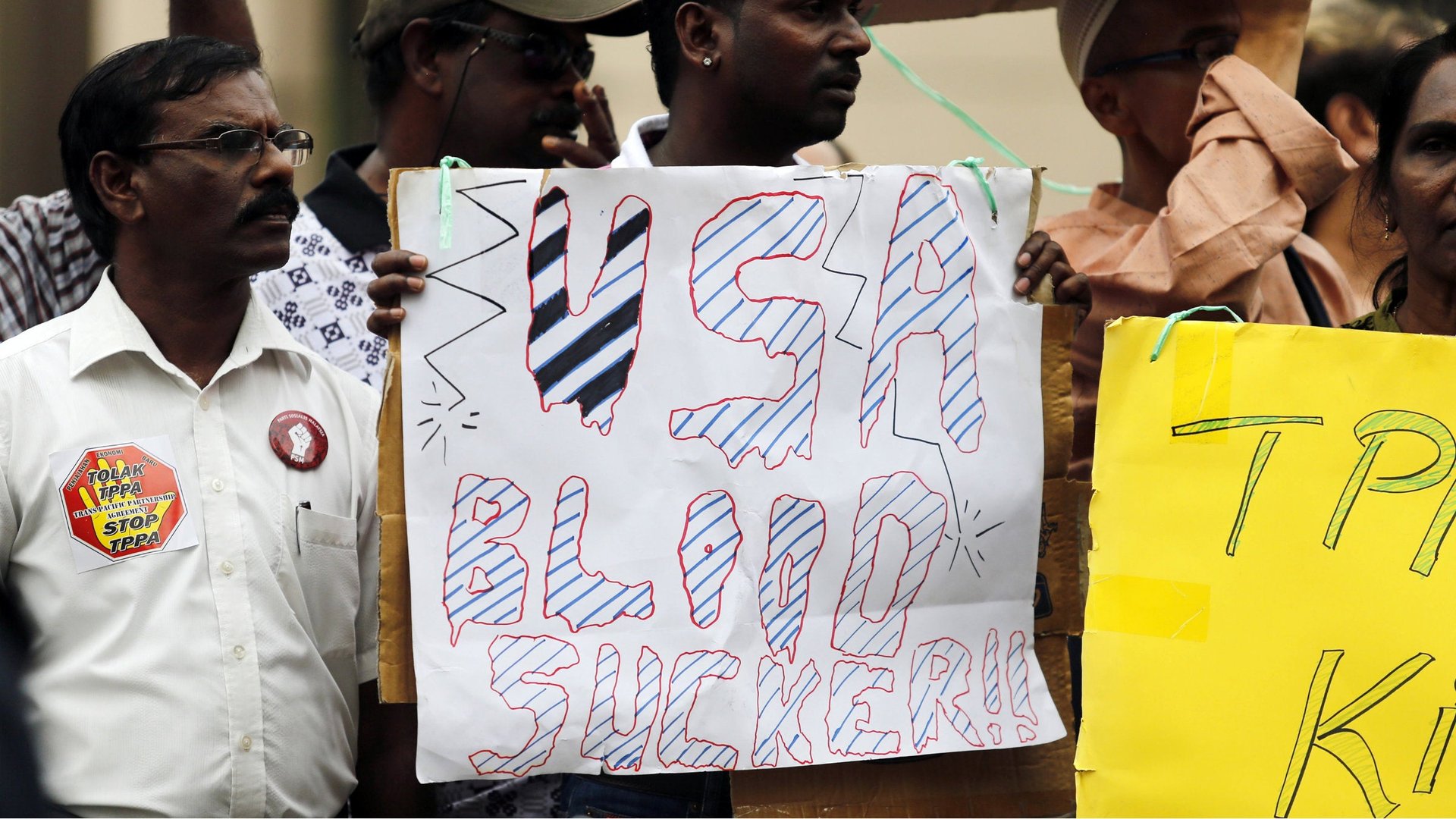Leaked free trade draft shows the US pushing hard on intellectual property restrictions
Wikileaks is at it again, releasing a secret draft of a free trade agreement between twelve markets representing 40% of the global economy, including countries from the US and Japan to Vietnam and Malaysia.


Wikileaks is at it again, releasing a secret draft of a free trade agreement between twelve markets representing 40% of the global economy, including countries from the US and Japan to Vietnam and Malaysia.
The leaked chapter concerns intellectual property rules being negotiated for the Trans-Pacific Partnership—one of the most contentious parts of the talks. The draft shows clear differences between the United States, which is pushing for tighter rules on intellectual property, occasionally joined by Australia and Japan, and the countries pushing for more liberal rules, most vocally represented by Canada and Chile. Interpreting the document is a challenge, trade experts caution, and because it is two months old, doesn’t represent the current state of the talks.
“This a summing up of the first three years of negotiations, trying to piece together an integrated text…a lot of that stuff will drop out, a lot of that is tactical proposals,” said Jeffrey Schott, a former US trade negotiator who still advises the government. The US wouldn’t comment on the draft, except to say that nothing had been to agreed to.
What is clear is that the US is pushing hard to make its IP regime the standard for the TPP countries, asking them to adopt existing US laws or forego flexibility to set their own standards. It’s no surprise that the US would ask, for example, that its trade partners enforce laws against copying movies or pharmaceuticals made by US companies.
But trade deals can have unintended consequences—one fear is that the TPP will make it easier for tobacco companies to fight public health rules intended to stop children from smoking. And NGOs that favor open information, like the Electronic Frontier Foundation and Public Knowledge, fear that the IP section is full of proposals that limit online freedom—more specifically, that US IP is flawed and shouldn’t be exported.
EFF has a full list of critiques of the draft—one example concerns the liability for platforms like YouTube when users post content that may infringe on others’ intellectual property. In the US, fair-use content can get taken down mistakenly by platforms seeking a legal safe harbor granted to those that quickly address potential violations. Open internet activists (along with all the members but the US and Australia) want TPP countries to have more flexibility to determine their own approach.
The conflicts around digital rights show how much intellectual property law has changed with new technology, and underscores the challenges of creating international agreements when national laws are still very much in flux.
There are approximately 700 trade advisers chosen by the US government who input on the trade proposals—representatives of business interests, think tanks, labor unions and environmental organizations. But open internet activists aren’t nearly as involved. It’s not clear if any were invited, but Maira Sutton, a global policy analyst at EFF, says that no one from her organization would sign the non-disclosure agreement required to access the documents for fear of losing the opportunity to raise public awareness.
Once a deal is agreed to by negotiators, it must be ratified by the US Congress to come into full force. Sutton compares the provisions in the deal to those included in the Stop Online Piracy Act, a bill defeated after open internet activists campaigned against it last year. While the TPP as a whole contains a raft of other provisions that could increase trade, that precedent should give pause to anyone who expects that a trade deal, which could be concluded sometime in the first half of 2014, will come into force without a further battle over intellectual property and digital rights.